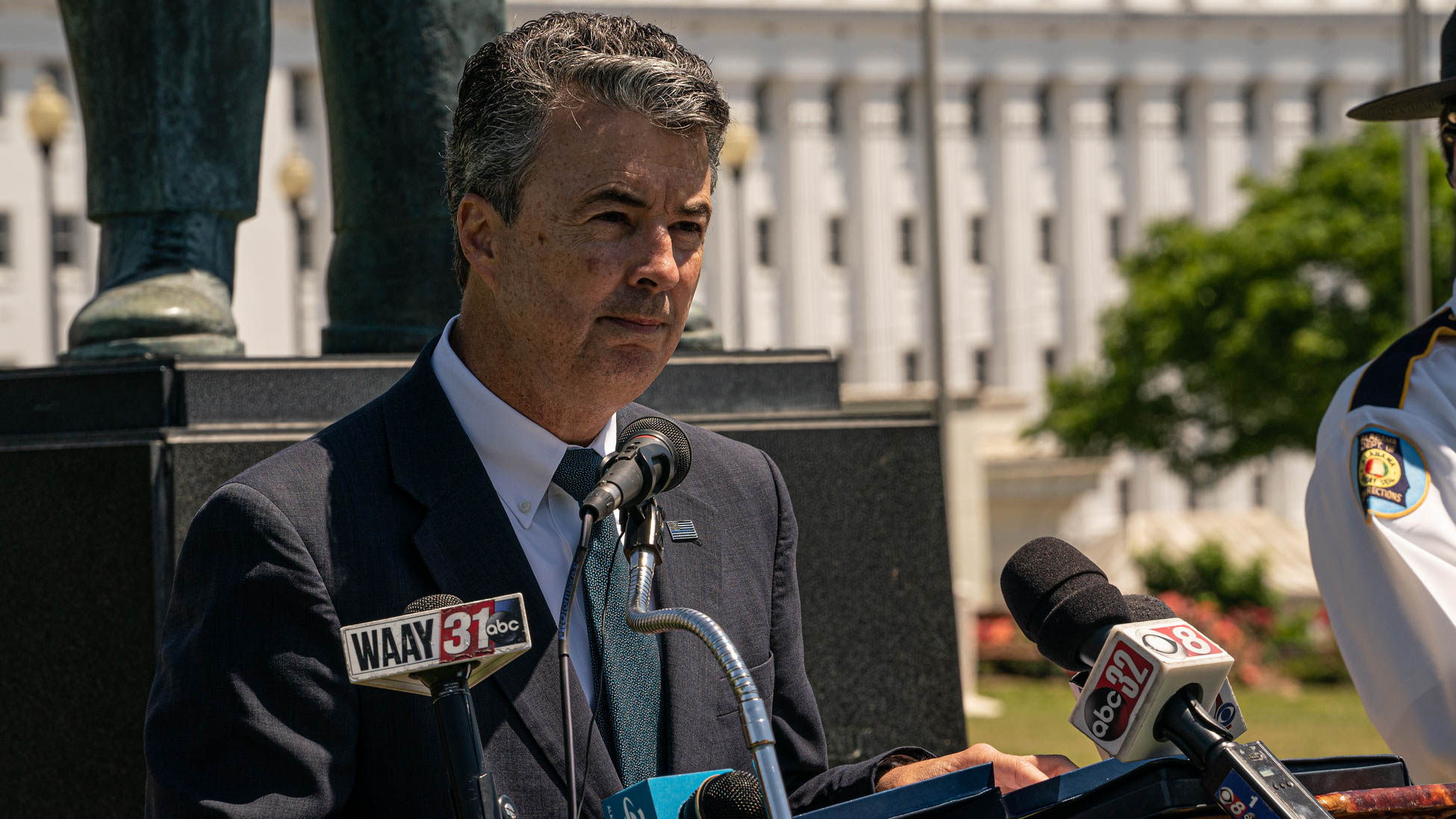|
Getting your Trinity Audio player ready...
|
Attorney General Steve Marshall returned an opinion to the Alabama Public Library Service last week on whether it has the authority to mandate how libraries deal with “age inappropriate materials.”
Marshall wrote in his opinion that the state agency cannot directly control what local libraries do, but can make state aid contingent on adopting certain policies, effectively forcing most libraries to comply or face cuts that could prevent them from purchasing materials altogether.
“The Alabama Public Library Service lacks the direct authority to impose mandatory guidelines on local public libraries regarding age-inappropriate material but may condition funding implementation of said guidelines and may cancel or suspend its recognition of local public libraries or local librarians that refuse to follow them,” Marshall wrote in his opinion.
The APLS board requested Marshall’s opinion more than three months ago as the group Clean Up Alabama began pressing the board to take action to make libraries move “inappropriate materials” out of children’s and young adult sections.
Angie Hayden, spokesperson for Read Freely Alabama, said the opinion does not come as a surprise to librarians.
”However, until now, the APLS criteria has been ideologically neutral, and Gov. (Kay) Ivey’s suggestions would change that …
“This is nothing more than an anti-library, ideological attack on state library funding. If they have their way, underfunded libraries – especially those in the Black Belt counties, will be forced to implement discriminatory policies that segregate any content that any group in power deems inappropriate, or be forced to close. This will be disastrous for those communities that depend most on libraries as their only source of wifi, computers, and support services like career development and veteran’s assistance.”
Ivey asked the APLS board in November to make changes to the administrative code to require libraries to develop such policies, although the code does not provide a template for how those policies should look.
The 90-day public comment period on the proposed changes began at the end of January and will continue up until a public hearing on April 30 for final public comments to be made.





















































